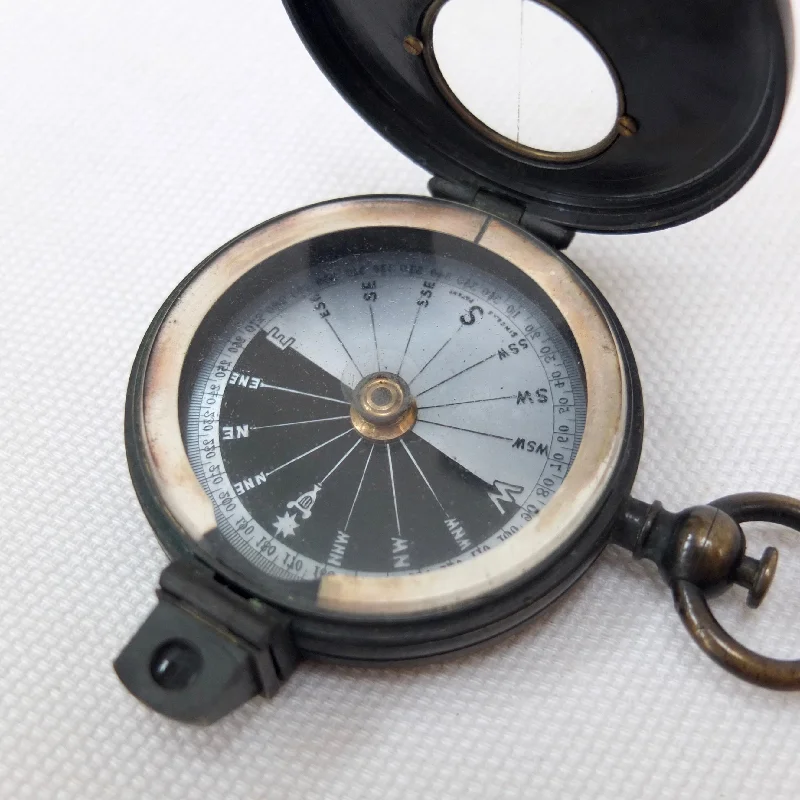A very rare Singer's Patent Prismatic pocket compass, dating from around 1868. With a brass case, prismatic sights, jewelled pivot, and mother of pearl compass card. One of the earliest prismatic compasses, it represents the transition between the early 19th century Schmalcalder types and the Verner's Patent compasses of the 1890s to early 1900s. The inclusion of the wording 'Singer's Patent' combined with the lack of a serial number shows that the compass was made around the time Singer's patent expired in 1868. The mother of pearl compass card is hand painted in the classic Singer's design, and marked 'Singer's Patent'. This type of compass was usually made with a paper compass card, with the mother of pearl version being much more uncommon. Although there are no makers marks, this design is known to have been made by Francis Barker before 1875, and examples can be seen at compassmuseum.com, and in Kornelia Takacs book Compass Chronicles (Schiffer, 2010).
Samuel Berry Singer (1796 - c.1875) was a master mariner from Southampton when he patented his unique design in July 1861. Its high contrast design was intended to be much easier to read in low light than conventional compasses of the time. He did not benefit greatly from his invention, the patent lapsed in 1868, and he ended his days living in poverty in Kincardine on the Firth of Forth.
Condition:
In very good condition and good working order. The compass finds north well. The mother of pearl card is in very good condition. The transit lock (operated by the button at the bow) is not working, and does not lock the dial, but this has no other effect on the functioning of the compass. There is some wear to the original blackened or oxidised finish of the case.
Dimensions: 50mm (Diameter), 65mm inc. prism

